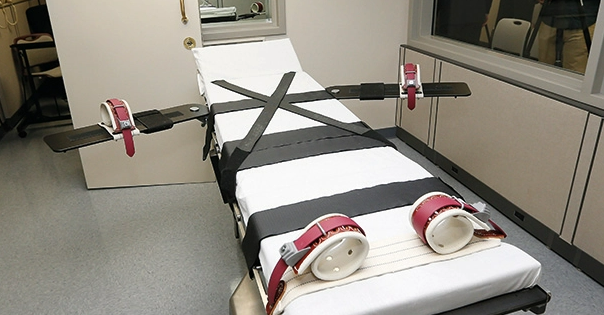Oklahoma Attorney General - Executions Weigh Too Heavily on Guards
AG files motion stating current pace of executions is unsustainable

A proposal by Oklahoma’s new attorney general to push back scheduled execution dates for death-row inmates may spark new debate over stresses faced by those charged with carrying out lethal injections.
According to the Oklahoma Department of Corrections, there are 10 executions remaining for 2023, and the only month without an execution planned is September. Oklahoma’s current schedule of executing a death-row inmate roughly every 30 days is placing too much of a burden on prison staffers, Oklahoma Attorney General Gentner Drummond wrote in a motion filed Wednesday with the Oklahoma Court of Criminal Appeals. The AG proposed a new schedule that would set executions at least 60 days apart.
“One aspect that has become clear over time is that the current pace of executions is unsustainable in the long run, as it is unduly burdening the (Department of Corrections) and its personnel,” Drummond wrote. “This is especially true given the extensive and intensive nature of the training DOC personnel undergo to prepare for each execution.”
A study published in 2015 by the National Institute of Corrections concluded that executions inflict emotional and psychological damage on people like prison guards and others involved in carrying them out. Beginning with “anticipatory trauma” that might occur when an execution date is set, stresses may continue even for years after an execution, the report found.
“Prison guards, who most closely interact with condemned prisoners on a daily basis, are particularly affected, including and especially those acting as executioners,” the NIC reported. The organization added that more than 25% of U.S. prison employees experience depression, and having to deal with death penalty cases likely compounds anxiety and depression for many.
Opponents of the death penalty in Oklahoma have pointed out other serious concerns. An Oklahoma Death Penalty Review Commission in 2017 concluded that the state was in danger then of “barreling ahead” with an unprecedented number of executions despite numerous flaws found in implementation of the death penalty. The commission was created in March 2016 during a pause in executions in the wake of botched lethal injections in 2014 and 2015. Many of the executions carried out across the U.S. in 2022 also were found to have been “botched” or highly problematic, and seven of 20 execution attempts were either visibly problematic or took an inordinate amount of time.
Archbishop Paul Coakley of Oklahoma City has called on state lawmakers to end the death penalty, saying it “only contributes to the continued coarsening of society and to the spiral of violence. … Taking another life does not ultimately bring closure and peace to those who have lost a loved one, and it goes against the principle of valuing life.”










